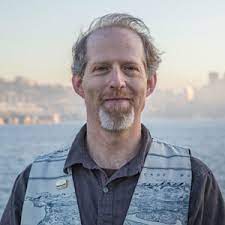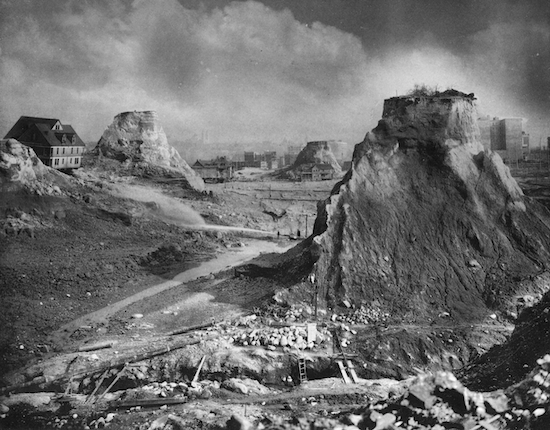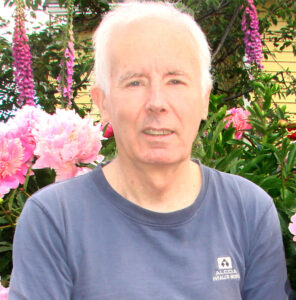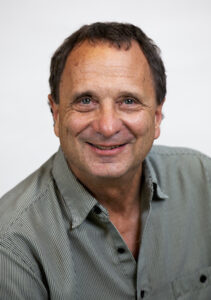

The Lecture. Unlike many regions in the country, the Seattle area is constantly reminded of its geologic past, present, and future. Whether it is our landslides, our glacier-carved topography, or our volatile volcanoes, this area’s geologic history is young, dynamic, and accessible. In this talk, David explained why we can blame California for some of our geo hazards, how coal influenced our economic development, and why it’s harder to travel east/west than north/south throughout the area.

Denny Hill, Seattle, 1910
The Lecturer. David B. Williams is an author, naturalist, and tour guide whose award-winning book, Homewaters: A Human and Natural History of Puget Sound is a deep exploration of the stories of this beautiful waterway. He is also the author of Too High and Too Steep: Reshaping Seattle’s Topography, Stories in Stone: Travels Through Urban Geology, as well as Seattle Walks: Discovering History and Nature in the City. Williams is a Curatorial Associate at the Burke Museum and writes a free weekly newsletter, the Street Smart Naturalist.
Book sale/signing. David B. Williams brought a supply of his award-winning books for sale before and after the lecture.


